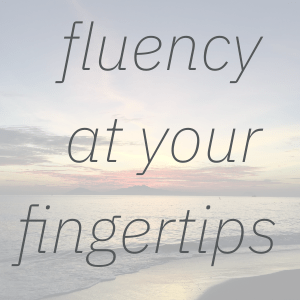July 11, 2020
Language unites humanity. That is a powerful statement—that our shared capacity for language is a defining trait. On the other hand, the way we use language to define ourselves and express who we are divides us. It is important that while acknowledging our unique experiences and practicing tolerance, we make for learning when cultures, or even cultures within cultures, collide.
I was making coffee this morning when the thought struck me that I had done so in exactly the same way before. The first time I had made coffee in this way it was déjà vu—I was not quite clear if making coffee in that way was something I had dreamt about or if I was having a premonition I would do so again in the future. It is not unusual to say that I had been making coffee, but it is odd to say that I had been making coffee and had a lucid, transcendental thought.
Before I went on a month-long temple stay at Golgulsa in 2012, my local Korean friends had told me that sort of activity was akin to taking refuge to mend. I had merely thought to have myself a nice little holiday in the mountains. But, it was more than that.
At the temple, we woke at half-past four in the morning to do seated meditation for an hour, followed by a half-hour of walking meditation, light exercise, and breakfast at 6:30. In the afternoons there were other group activities, including either meditation or sports. In the evening, we did Zen martial arts—Sunmudo.
In Korea, I enjoyed hearing casual reflections from Korean acquaintances on duality. I was also fascinated by the meaning of the common greeting and farewell, “Annyong,” which literally asks the question, “Are you in peace?” To which the response is always, “yes.”
Duality is even represented on the South Korean flag, Taeguki, in its central symbol. Whereas the symbol depicts opposing forces, I find it more accurate to understand the Zen discourse on non-duality not as a denial of two sides to life but rather that life exists on a continuum, that matters are not black and white, and that there is not only a continuum in the moment but also over time.
The fact that we tie experiences together in our minds when we reflect on the past does not mean they exist simultaneously in the ever-present moment, but rather that everything that is now began elsewhere in a different form, and that absolutely everything is mutable and in constant evolution.
That we, as well, are mutable should give us hope—hope that we can change for the better, evolve within our lifetime, and can reach peaceful understanding with others.
Among Koreans, there’s great pride in the monks of old times from whom Zen martial arts are derived. Modern Sunmudo is recreated from images and stories of the legendary monks—legendary for having superpowers. Despite the existence of this rich tradition, a Korean student of mine, who had completed his military service, explained that it was required of all soldiers to attend Catholic mass through their period of mandatory military service. He pointed out that soldiers were educated in lessons of the Bible, and that this had been an aspect of their indoctrination.
The manifold belief systems that underpin behavior are at once ephemeral and palpable. Even enlightenment can appear as an experience in our lives on a spectrum from humdrum to bliss. And so, to crack the nut of identity, we must see beyond nation and beliefs. Unfortunately, for two hundred years the nation-state, patriotism, and ultranationalism have driven a great many people to define themselves according to socio-political artifice.
The nation as a belief system serves itself alone. It is tied into other such despicable characteristics as chauvinism, sexism, classism, and racism. Unfortunately, patriotism is deemed honorable and equated to dignity and pride. Yet, few walk the fine line between solidarity and tolerance without revealing prejudice. In the United States, even the terms anti-fascist, progressive and left are, by some, twisted as pejoratives. Wherefore can a hard stance against fascism be taken with tolerance?
We must see that divisions have been created where there are none. We must have faith that those who have not yet questioned their beliefs can do so. If not, we live in desperation and with futility.
As an educator, I have told my students, “If I can learn, you can learn.” I say this about hard skills like math, music and foreign languages. And, I say it about mindset, outlook and belief. In language, I hope that we learn not to use language of war when we describe our homes, as in the odious expression, “home front.” I hope we learn to base perceptions of each other on neither appearance, accent, nor manner of speech. I hope people who proudly define themselves by myths of nation of origin learn not to charge as unpatriotic those who take great risk in attempting to change the same countries and political systems for the benefit of all people.
South Korea is a seemingly homogenous culture to the untrained eye, but the true origins of the people are not monolithic. This can be said the world over, as in Vietnam where the people originate from many dozens of tribes, from around Asia and beyond, and where I, fortunate as a Colombian-American, was told I looked Vietnamese, married, and with my wife have a Vietnamese-American son. But, perhaps I should take my own advice and not label myself and my family by race or nationality, but rather just say we are a happy family.
Just as déjà vu is a trick of the mind, and we cannot be deluded by the belief we have supernatural powers, we cannot be led to believe that though we may claim heritage in a country or culture, we cannot embrace the deeper truth that we are part of a world-wide human family.
Leave a Comment